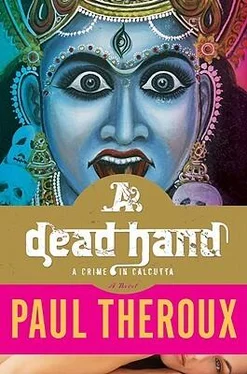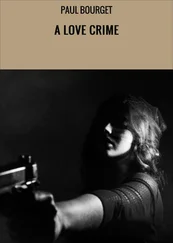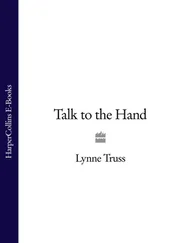"More," I said.
Alone, I became inward and analytical, taking altogether too much notice of my dreams, as solitary people do, hoping for good omens, hoping for hope. Lately I dreamed of narrow escapes, of making my way across the ramparts of very high walls and having to descend the narrowest and steepest staircases, with no handrail, a great emptiness on either side, tiptoeing, dizzy and fearful. Yet I never fell, in all the variations of this vertigo. The clack of the ceiling fan, the rattle of the blinds, the voices in the street, and the bright morning sun only added to the tormenting effects in the dream.
I never suspected Mrs. Unger of being a tormentor. She was busy. I was not busy at all. There was not a day I spent in Calcutta in my moping that I did not think how virtuous she was, working every day to improve the lives of those children, and how selfishly I spent my time, helping no one. I thought often of the bat-eared boy Jyoti: how much she had done for him, how she had saved him — the sort of street child I saw every day in Calcutta and simply hurried past, not wanting to think of his fate. I did not regard myself as worthy enough for her to care. I deserved to wait. Ask no questions was a conundrum, but it was an order I deserved. My patient waiting was the proof of my loyalty. I was not in love, but something deeper took hold of me, a peculiar form of devotion, a need for her to protect me. And I knew that others must have felt the same — the lost children, for example.
Maybe I was one of them.
One of the sunnier remarks of a gloomy German philosopher is that the only way of knowing a person is to love without hope.
The other effect of my solitude was that the diary I had started had become the repository of all these thoughts, even a kind of narrative. Keeping a diary is often an unmistakable sign of desperation. It was a log of my feelings, a chronology of incidents (including the ones I have described here), and an account of time passing. It served its purpose: I had nothing else to write; it kept me busy at night and reminded me of my pain.
I go for walks, I wrote. I look for the man I once was. I believe that by wandering I might find him wandering here. I need to soothe myself in this uncertainty. I want something to write about. Walking in the big decaying yet eternal-seeming ruin of the city helps me meditate on the past and gives me the hope that I might find the man I had once been — confident in a strange country, so anonymous as to be invisible, living the muffled and spectral existence of a traveler, ghosting from street to street in the endless decrepitude, unseen. I expect to come face to face with myself.
What a shock, then, in this mournful scribbling, in my mood of anonymity, one afternoon to be touched physically in the street. It was not the sleeve-tug of the beggar or the tout but a hard pinch, skin to skin, by the pincers of a skinny person's fingers. I pulled my hand away.
"Take, sir."
"No."
"Please, sir."
A thin-faced girl in a shawl was urging me to accept a piece of folded paper from her. I imagined she was selling something or that she was trying to distract me so that my pocket could be picked. This was why, when she touched me, I shoved my hands into my pockets and clutched my wallet and keys, pressing my arms to my sides. Or I'd take the paper and she would say, "No mother, no father. Please, you give me, sir."
But she said, "Mobile number, sir."
"I don't want it."
"Mina, sir."
That stopped me. And now I recognized this nervous girl in the shawl as the new clerk from the Ananda, the head of gleaming hair that had bobbed beneath the counter.
I accepted the paper. Without a pause, she drew her shawl tighter and darted away, dodging oncoming pedestrians, slipping past a man with a barrow piled with coconuts and children's sandals.
It always amazed me to see an Indian run — sprint in this traffic, through the crowds, into the heat. Yet they often ran, and the poorer and more ragged they were, the faster they went, knees pumping, feet slapping. Foreigners never ran in India.
I unfolded the paper. I walked a bit, then stepped into a doorway, dialed the number, and cupped my hand over the phone. I heard ringing, then gabble. I could not understand a word. I said into the din, "Mina?"
"Yes, here."
"Someone just gave me your number."
"My friend. I am knowing."
"What do you want?"
"Pass information."
"Okay. Let's meet."
"Tomorrow, teatime."
"My hotel. The Hastings."
"Cannot hotel, sir."
"What about the Roxy, or the Oly Pub?"
"Cannot Roxy. Go to Eden Teashop. Middleton Row at Park Street. Teatime."
I had to ask her to repeat this several times.
Finally she said, "Taxi will know."
"Will I recognize you?"
"I will find you, sir."
Of course, the big pink ferringhi would be obvious.
As Mina had predicted, the taxi driver knew the precise place, a small bakery and café with some trays of Indian sweets in the window and more in a glass case under a counter inside. I had last seen Mina wearing a pink dress, so I was confused when I went in at the appointed time — I took it to be four — and didn't see a woman who resembled her. No dresses, only saris.
Seating myself in the corner, with a good view of the door, I ordered tea from a waiter and cautiously looked around. Three tables were occupied. My tea was served. I sipped it. I read a section of the Statesman that was lying on a nearby chair, and when after thirty minutes or more I did not see Mina, I paid the bill and left. I wondered what had gone wrong. I turned into Park Street and kept walking.
The heat, the stink, the diesel fumes, the noise, all combined to thicken the steamy air and burden me. How could people run in this air? I had stepped briskly onto the sidewalk but slowed my pace, with the heat on my shoulders, my head ringing from the smells. It was exhausting to be in the middle of so much human activity — so much futility, so it seemed — the people pressed against me and stepping on my feet. It wearied me to be touched and jostled at every step.
I was bumped. I turned to object and saw a woman wrapped in a sari hovering at my side.
"Mina?"
"Indeed, sir."
"I waited for you at the teashop."
"I could not enter in. I saw a relation of Mr. Bibhuti Biswas inside. I waited nearby, at the godown."
"So where shall we go?"
"Continue footpath this side to cemetery."
The Park Street Cemetery — I'd been there before on one of my reflective strolls. We walked, Mina and I, without speaking, she keeping slightly ahead of me. When we got to the cemetery gates she moved quickly onto one of the gravel paths at the side and vanished among the tombstones. I did not hurry. I had lost her, but I counted on her to find me. I plodded like a tourist. Deeper into the cemetery, where the tombs were like obelisks and pyramids, the vaults like little villas and classical bungalows, I saw her sitting on a mourner's bench near a big broken tomb — Doric columns, a marble wreath, a winged angel, and bold croaking ravens in the trees and hopping on the ground.
"Mina."
"Yes, sir. Here, sir. Thank you."
"Thank you for getting in touch."
"Sorry for the hue and cry, sir. I could not reveal myself."
"You're wearing a sari. I was expecting you in a dress."
I took a seat beside her and now, as she adjusted her shawl to speak, I could see her face. One whole side was swollen and bruised. Her left eye was rimmed with dark skin, the eye itself reddened, the white of the eye blood-drenched.
"What happened to you?"
"Mr. Bibhuti Biswas administered a beating, sir."
She slipped her shawl off her forearm and I saw bruises there, welts, red and crusted, black broken patches on her dark skin.
Читать дальше












